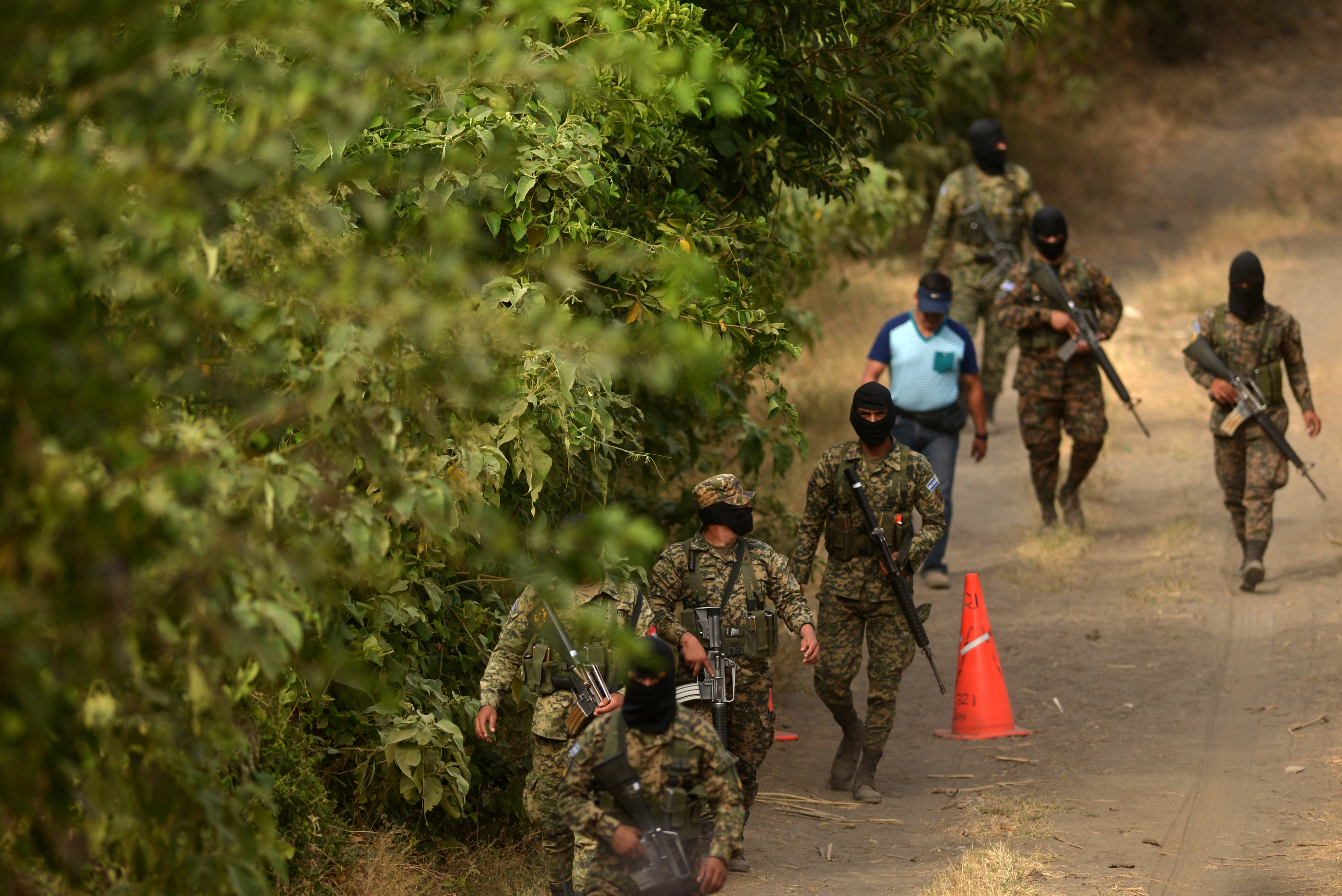The filmmakers putting a human face on US migrant crisis
Photo: () | ©AFP
Los Angeles (AFP) – Salvadoran medical volunteer Erick Beltran was on duty two years ago when gang members stormed his rescue corps base and riddled him with bullets. He hadn’t yet turned 15.
The youngster was the first casualty from his unit but one of 540 Salvadoran children murdered in 2016 in gang wars that have exacerbated the homicide rate across Central America and sparked a migration crisis at the US border.
With the eyes of the world on President Donald Trump’s “zero-tolerance” push against illegal entries, Erick’s story is among a glut of upcoming documentaries on the human beings behind the grim headlines about human trafficking, child prisons and organized crime.
“Telling character-driven, human stories is critically important in this moment,” said Joshua Bennett, of New York studio Show of Force, which is telling Erick’s story in documentary short “Los Comandos.”
“They put a human face on these major issues, and provide a context that is essential to making sound, humane decisions on migration and refugees.”
Bennet believes this humanity is lacking in a Trump administration walking back the US commitment to internationally-held standards of asylum and protection of vulnerable migrants.
An estimated 500,000 Salvadorans — many as young as 12 — are gang members or have connections to organized crime, in a population barely over six million.
In 2015, the country recorded 6,656 homicides. The murder rate of 108 per 100,000 people was the highest in the world.
– ‘Afraid to leave’ –
Founded over 50 years ago as a humanitarian rescue service responding to natural disasters, the “Comandos” volunteer ambulance corp has 32 bases around El Salvador.
“Los Comandos” tells the story of the unit’s stand against a reign of terror inflicted on ordinary Salvadorans by rival gangs MS13 and Barrio 18.
Erick’s colleague Mimi wrestles with whether to flee the country — a tropical, mountainous stretch of land about the size of Massachusetts — after his death or stay and work amid threats to her friends and family.
“They tell me, ‘Look, if you have the chance to migrate, go. But I tell them I’m afraid to leave,” the 16-year-old tells the filmmakers.
The documentary is part of Show of Force’s “Humanity on the Move” series, which is coming to TV as recordings of wailing children jailed in cages near the US-Mexico border ignite global outrage.
Despite Trump’s executive order ending family separations this week, there is no immediate plan in place to reunite the more than 2,300 children already taken from their families.
“Humanity on the Move” also features Bennet’s “Towards the North,” another documentary about the US migration from Central America.
Bennet and co-director Juliana Schatz-Preston introduce a tiny refugee shelter in Tapachula, Mexico, where we meet Nelly and her daughter Joseline, who are fleeing extreme gang violence in El Salvador’s neighbour, Honduras.
– ‘Political pawns’ –
With their sights set on the US, they cover the length of Mexico, facing immigration officials and taking selfies along the way, only to arrive in Tijuana where the border suddenly becomes a dark reality.
“The gangs are governing Honduras. If a gang threatens you, you can’t hide anywhere. I will never go back,” says Nelly.
“I will never feel at home in any other country. But we will have to try to overcome, try to survive.”
Both documentaries are due to air on PBS in the fall along with “Sky and Ground,” which follows a family on foot from devastated Aleppo in Syria to the German capital, Berlin.
Closer to home, “The Unafraid,” which closed New York’s Human Rights Watch Film Festival on Thursday, follows the personal lives of three recipients of the Action for Childhood Arrivals (DACA) program in Georgia.
The state has banned them from attending its top universities and disqualifies them from receiving in-state tuition at any other public college.
Filmmakers Heather Courtney and Anayansi Prado take an intimate look over four years at the trio’s lives as they pursue their right to education and fight for the rights of their families.
The directors told AFP in a joint statement Congress and the Trump administration were using the youngsters, their parents and thousands of DACA recipients as “political pawns.”
“They and their families and communities deserve better, as do those parents and children coming to the US today, fleeing violence in their home countries,” they said.
Disclaimer: This story has not been edited by Siliconeer and is published from a syndicated feed. Siliconeer does not assume any liability for the above story. Validity of the above story is for 7 Days from original date of publishing. Content copyright AFP.


